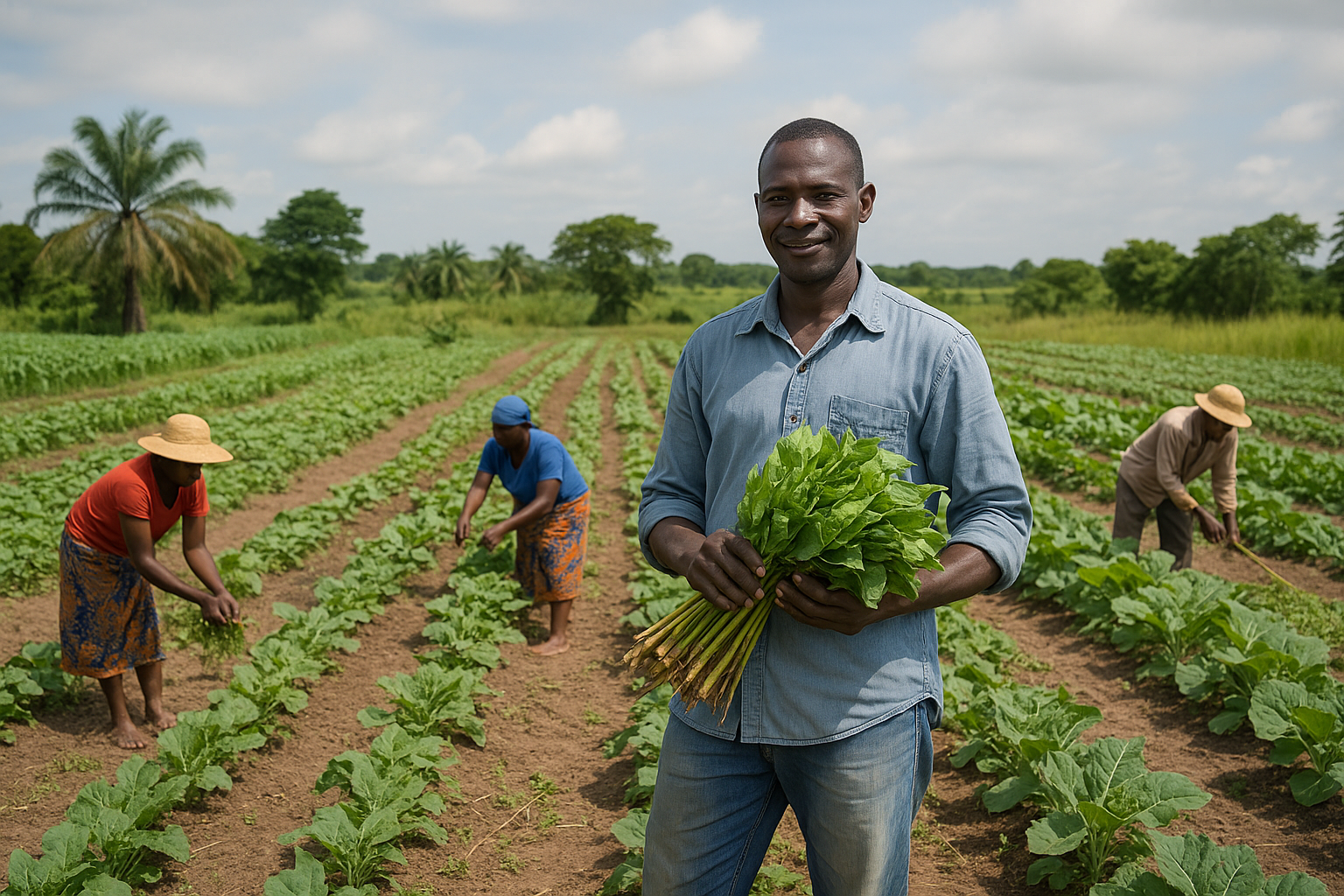IFAD Urges G20 to Prioritize Rural Investment to Drive Global Development
“Home to 80 per cent of the world’s poorest people, the path to a sustainable future runs through rural areas,” said Lario.

- Country:
- South Africa
As G20 leaders convene for the Development Working Group (DWG) Ministerial Meeting, the President of the International Fund for Agricultural Development (IFAD), Álvaro Lario, has issued a powerful appeal to world leaders: invest in rural communities if we want to unlock global progress.
Speaking ahead of the meeting, Lario emphasized that 80% of the world’s poorest people live in rural areas, making them a critical battleground in the fight against poverty, inequality, climate vulnerability, and food insecurity.
“Home to 80 per cent of the world’s poorest people, the path to a sustainable future runs through rural areas,” said Lario. “They remain rich in untapped potential — and inclusive rural transformation will therefore supercharge global development across all other dimensions.”
Why Rural Transformation Matters
Rural areas — often overlooked in global policymaking — hold significant economic and environmental promise. With small-scale farmers managing over 70% of the world’s food production, these communities can be powerful drivers of change if empowered with access to finance, technology, materials, and markets.
Investment in food systems, particularly through rural agricultural value chains, has shown a high return on investment, with every dollar generating up to $16 in social and environmental benefits, according to IFAD data. These returns extend far beyond agriculture, including job creation, gender equity, climate resilience, and enhanced food security.
“Investing in rural prosperity also drives resilience to climate change, reduces inequality, and reduces hunger,” Lario said, reinforcing IFAD’s advocacy for smallholder farmers and inclusive food systems at G20 forums.
G20 DWG Under South Africa’s Historic Leadership
This year’s G20 Development Working Group meeting carries added significance as it unfolds under South Africa’s presidency — the first time the G20 is led by an African nation. South Africa has prioritized development cooperation, putting the needs of emerging economies and the Global South at the heart of G20’s development discourse.
The DWG brings together member nations, international development banks, and multilateral institutions to assess global development trends and formulate action plans. With global progress on the Sustainable Development Goals (SDGs) lagging, this year’s discussions are more urgent than ever.
Global Development at a Crossroads
Current estimates show troubling signs for the SDG agenda:
-
Only 35% of SDG targets are on track or making moderate progress.
-
Nearly 50% are moving too slowly, while 18% have regressed.
-
The annual financing gap to achieve the SDGs stands at an estimated $4.5 trillion.
This stagnation threatens the progress made over the past two decades in areas like health, education, clean energy, and digital access — all of which depend on continued funding and political will.
Financing Innovation and Public Development Banks
To meet these financing demands, IFAD President Lario is advocating for greater use of Public Development Banks (PDBs), Multilateral Development Banks (MDBs), and international institutions like IFAD itself. He believes these entities are uniquely positioned to scale up investment in rural areas and climate-resilient food systems.
“Fully leveraging the potential of national PDBs, MDBs, and institutions like IFAD is one of the most effective ways to close this financing gap,” Lario stressed.
PDBs alone channel more than $2.5 trillion in investments annually, serving as a backbone for climate action, sustainable agriculture, and rural innovation. Through partnerships with local governments and private sectors, these banks can unlock blended finance models that reach smallholder farmers, rural entrepreneurs, and underserved communities.
A Call for Global Rural Solidarity
As climate change accelerates and global inequality deepens, Lario’s message is a clarion call to reimagine rural development not as charity, but as an engine of shared prosperity.
At the G20 DWG Ministerial Meeting, he will urge leaders to commit to bold, inclusive strategies that move beyond urban-centric growth and place rural communities at the core of development financing and policy reform.
By doing so, countries not only lift millions out of poverty but also pave the way for a more resilient, equitable, and sustainable global economy.
ALSO READ
Dr. Jitendra Singh Unveils 14 New Earth Science Tools to Boost Climate Resilience
Ethiopia and IFAD Launch $424M Project to Boost Climate Resilience in Lowlands
India's Maritime Sector: Pioneering Sustainability and Climate Resilience
From AI to IoT: How digital tools are powering race to achieve the SDGs
World Bank Reinforces Pacific Ties with Jobs, Climate Resilience and Local Reforms










